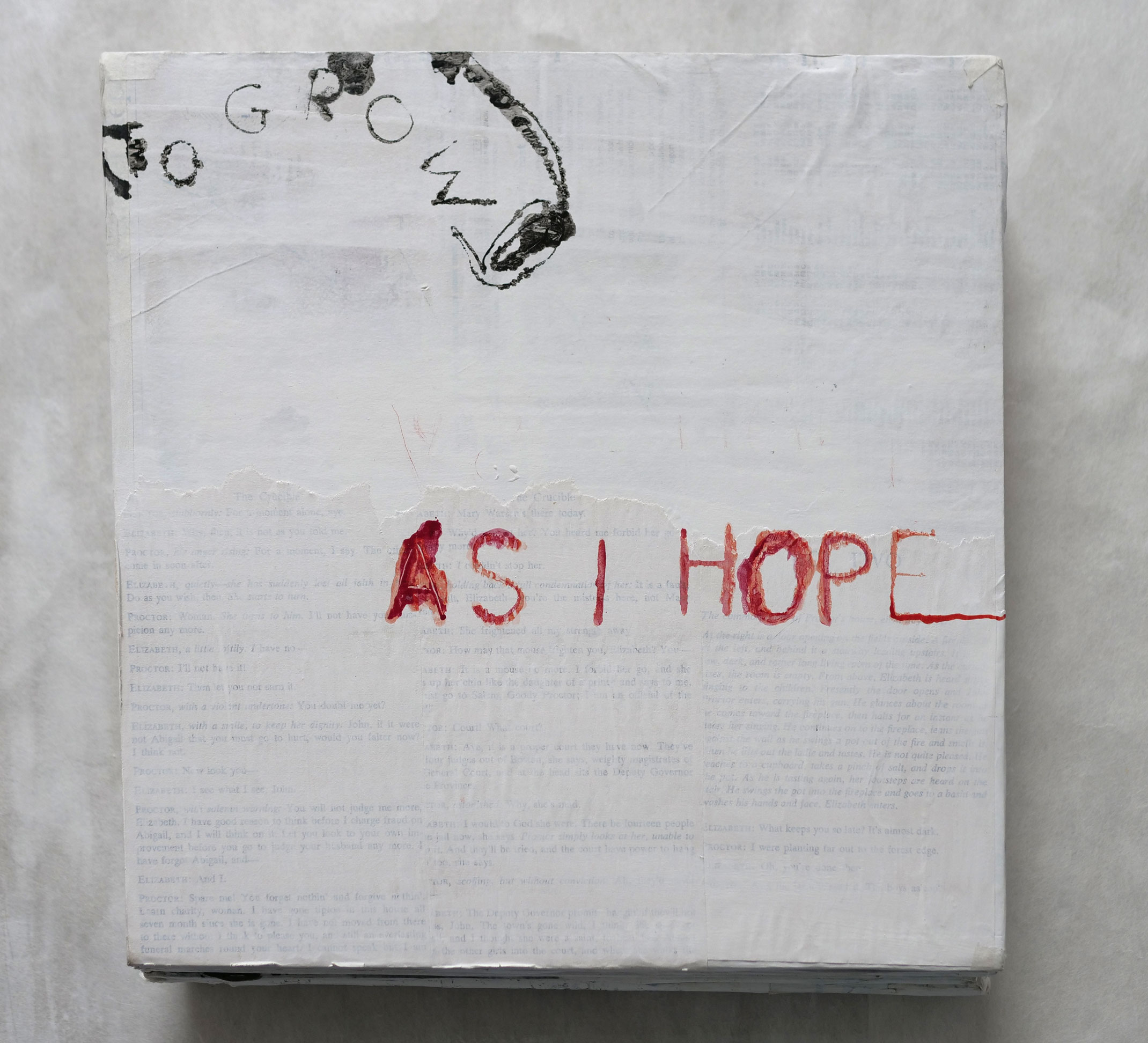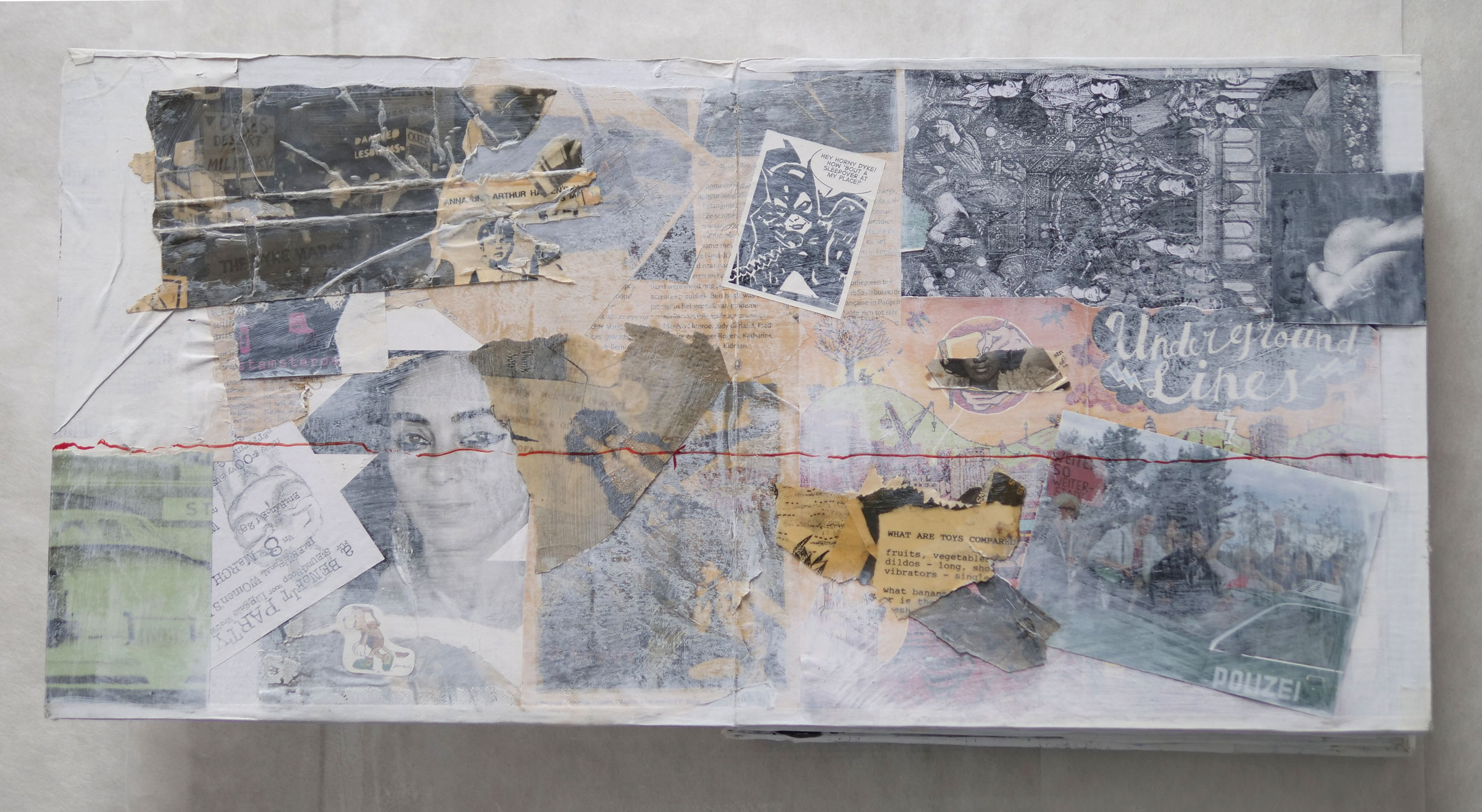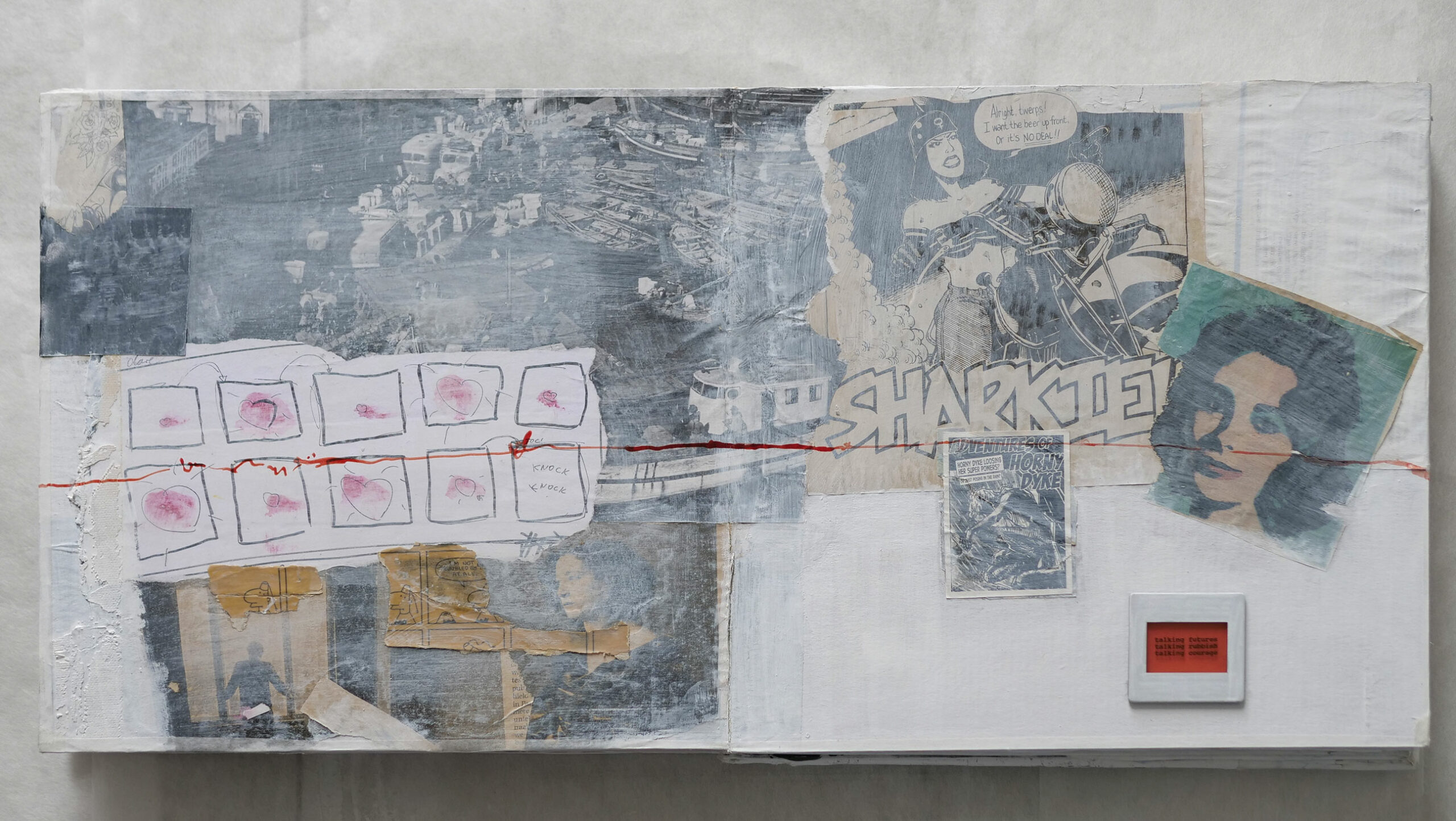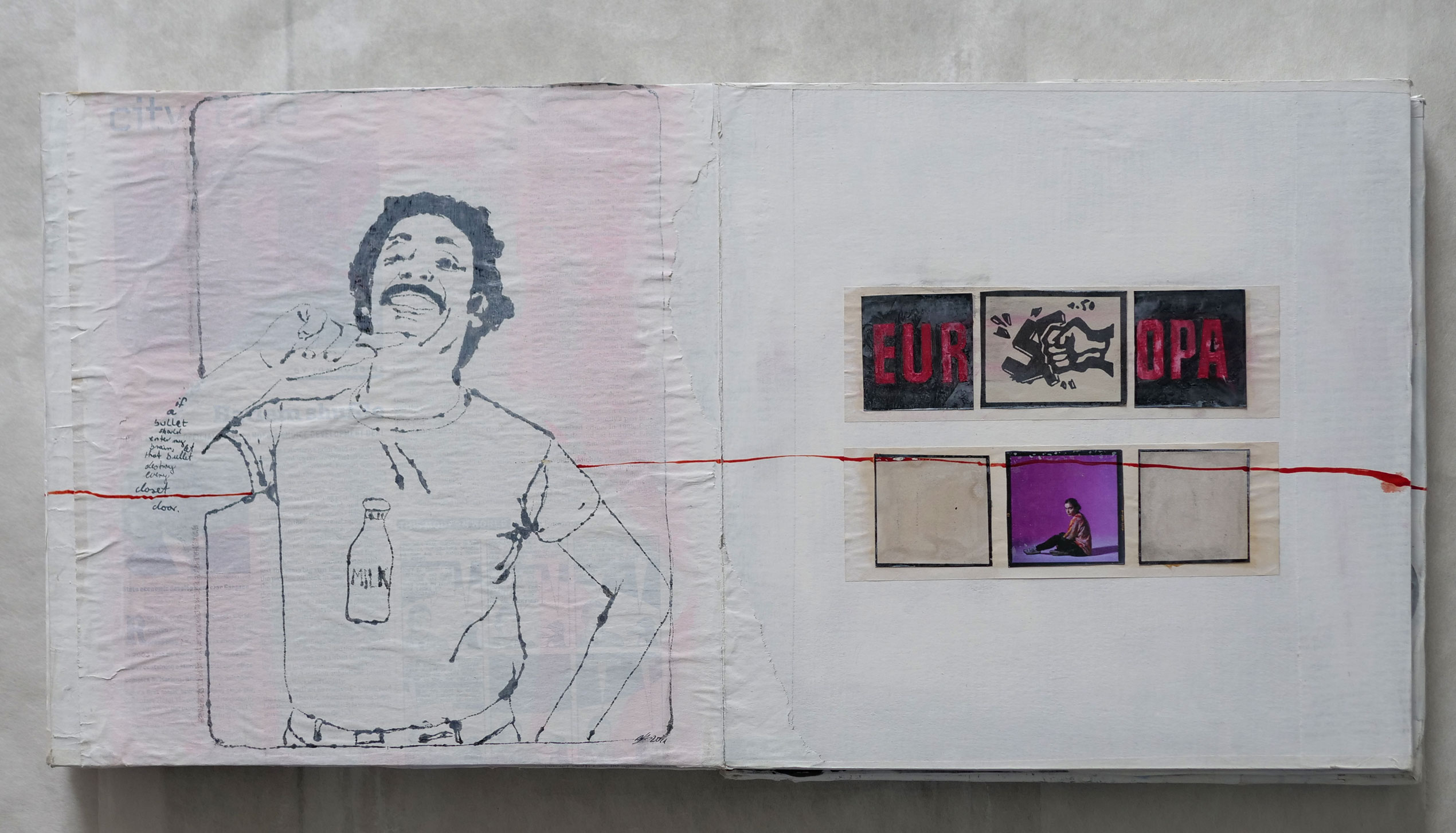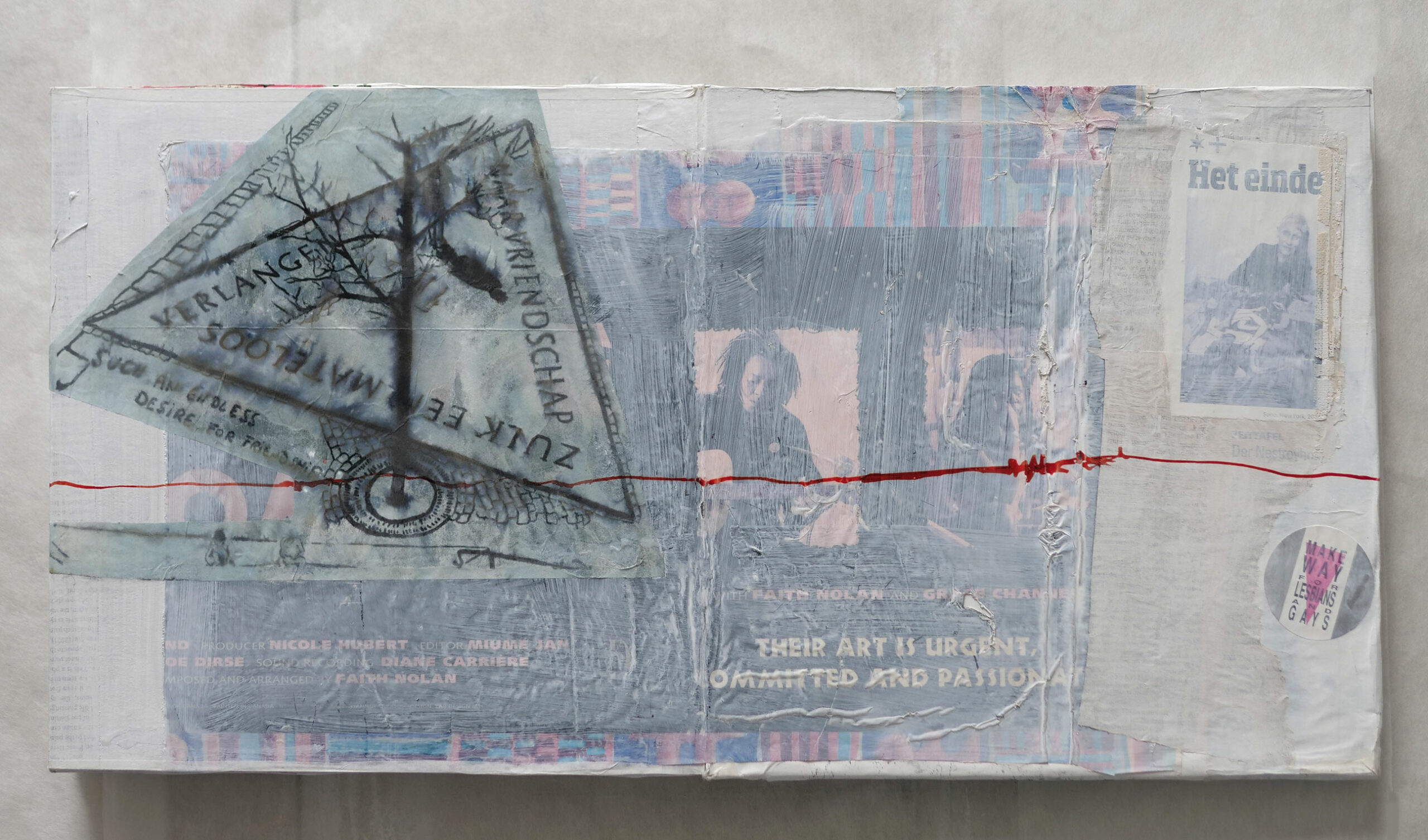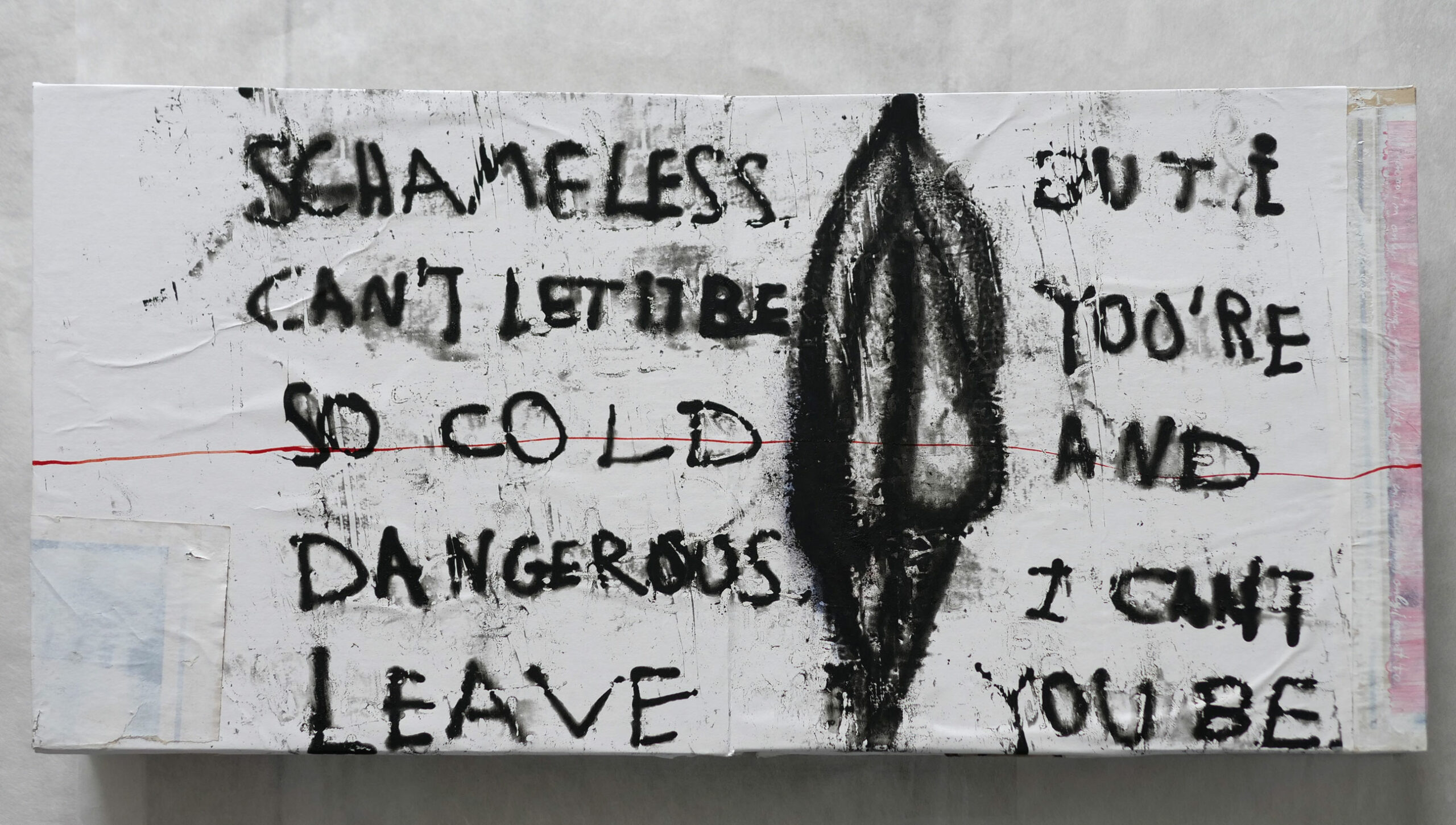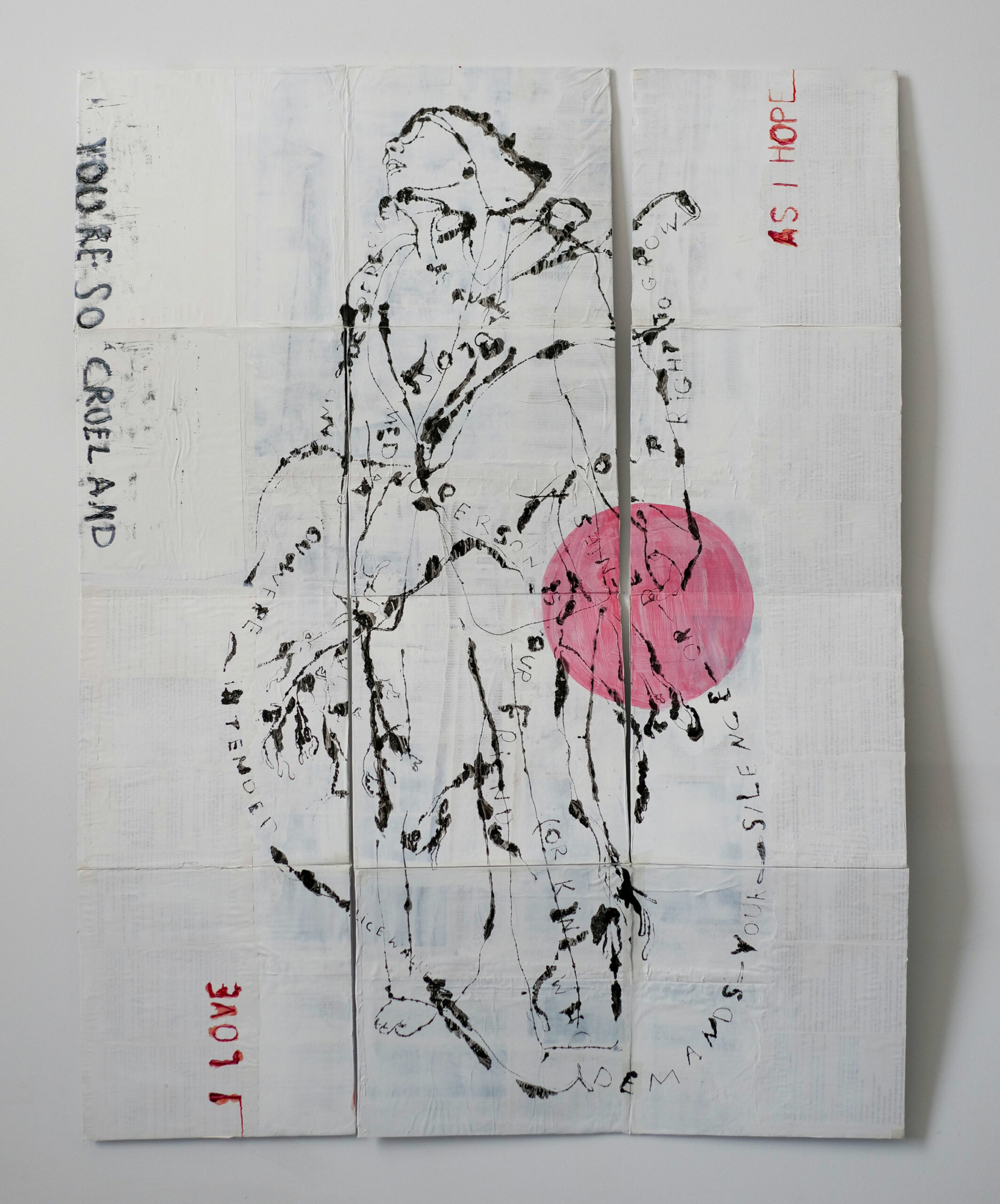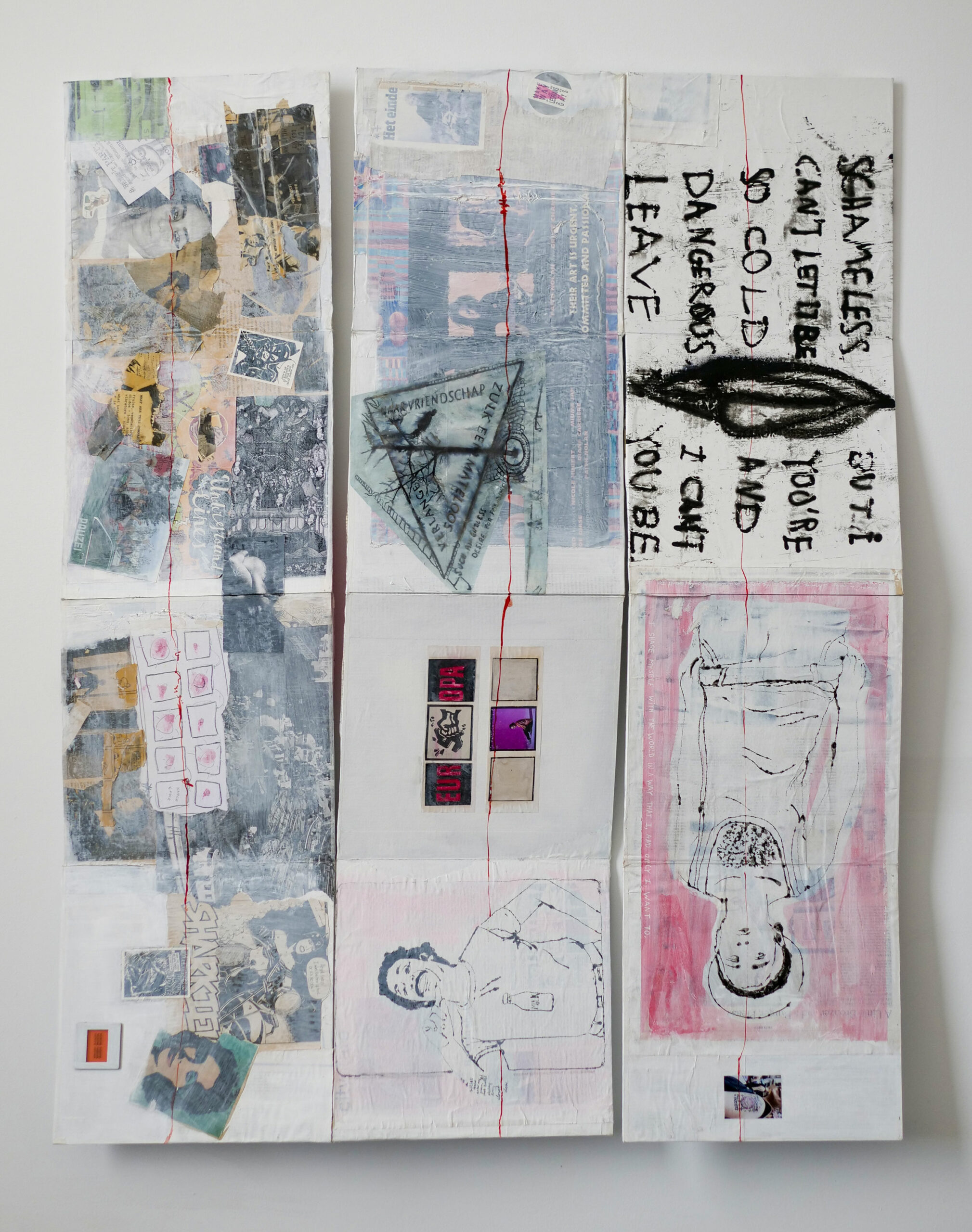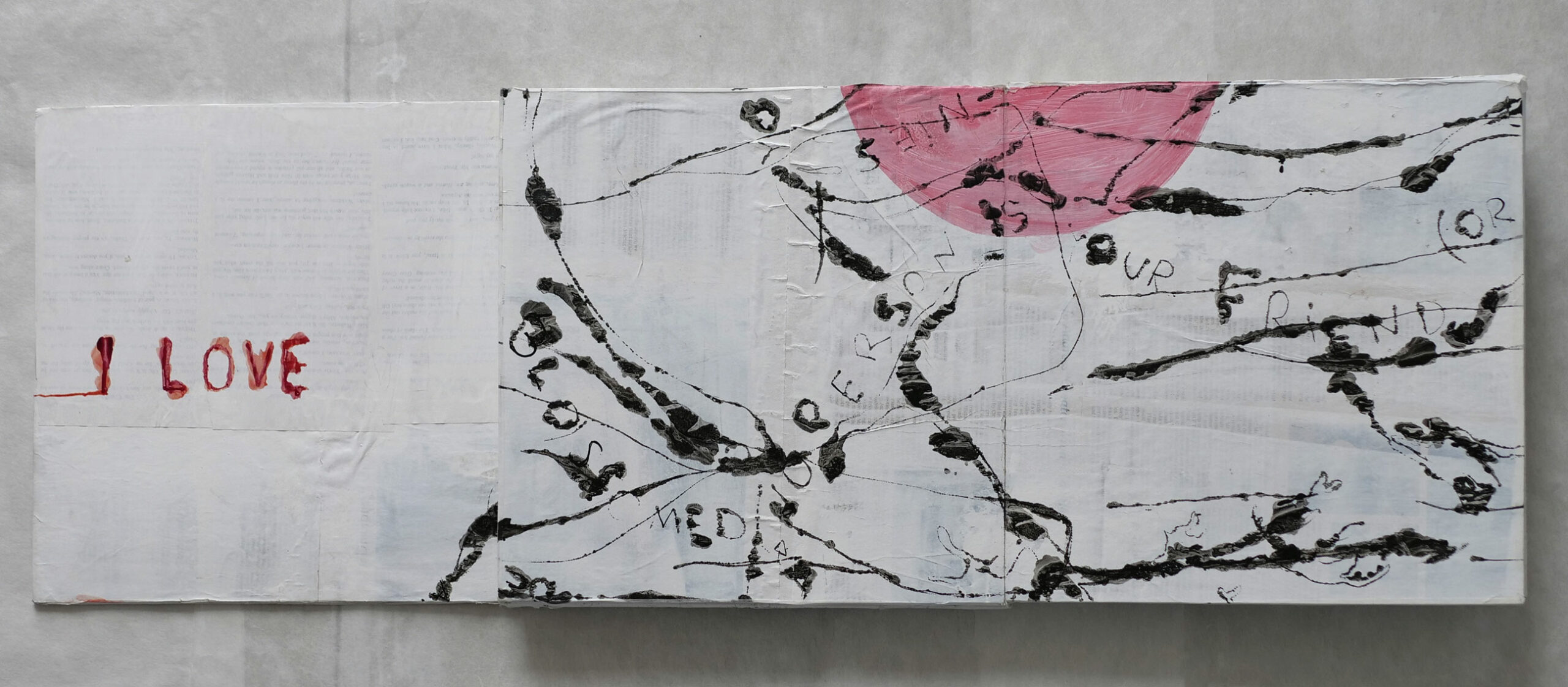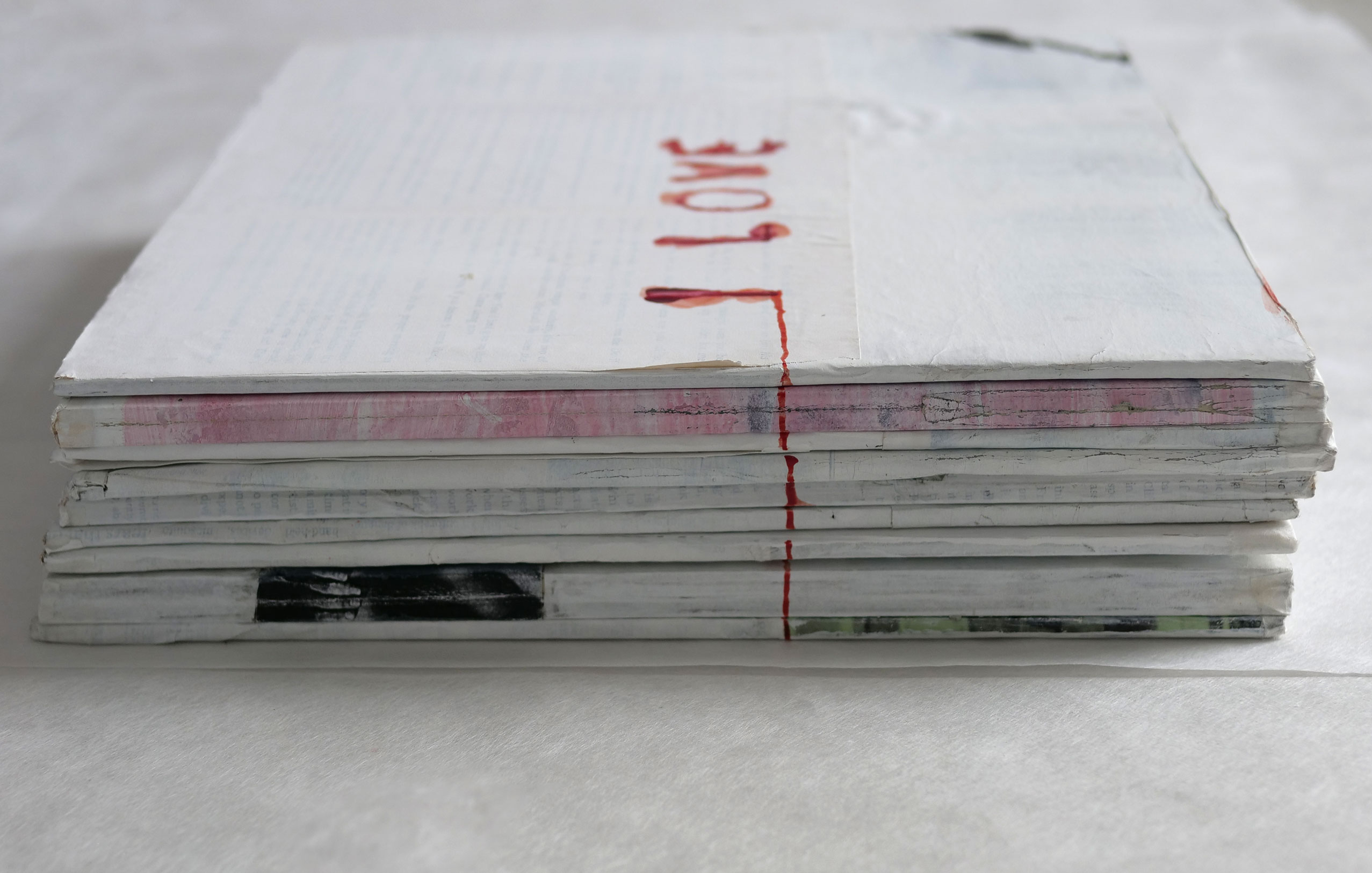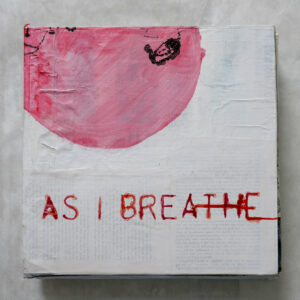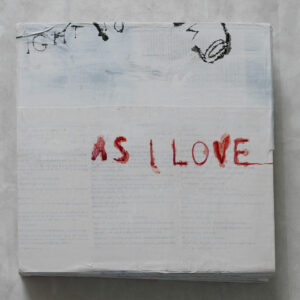Kitchen Table Diaries – Vol.2
Kitchen Table Diaries – Vol.2
Date
2022
Edition Size
unique
Media
Collage, Hand-painting, Ink, Inkjet, Line-blot, Monoprint, Newsprint, Photography, Phototransfer, plastic, Silkscreen
Binding
boustrophedon
Format
Artist Book
Dimensions
12 × 12 × 7 in
Collection
Collection Development, Unique Books$ 4,500.00
Unavailable
View Collectors
Bayerische Staatsbibliothek
We know about Marsha P. Johnson and Sylvia Rivera because of the shattering effect the Stonewall riots had – pulling the LGBTQ movement out of the societal closet and into visibility. ‘Out and Proud’, paving a way for every gay, trans and lesbian. To be seen as we are, instead of having us silenced into invisibility by ‘excusing’ gay men as eternal bachelors, lesbians as spinsters, and scolding, nay shaming, trans people as fake women and men. The pain and effort Butch women had to endure to become more feminine, either by resisting or complying with a society’s seemingly eternal construct of heteronormativity.
Volume two – As I Hope I Love is part of a three books series. The books are a diary of collages with materials from Europe, Turkey, and the U.S. which I collected and preserved on my kitchen table in the nineties and beyond. My memory of these times is fragmented, which is reflected in the sparse and incomplete imagery and text bits. Where there is a gap of lost imagery or text a white space shows up. I used common cardboard to build the structure of the books to reflect the hand’s on do-it-yourself approach of those times.
As a double sided boustrophedon the books can be paged in both directions. Folded out, they turn into a two sided imagery, revealing the Alice Walker quote: “No person is your friend (or kin) who demands your silence or denies your right to grow and be perceived as fully blossomed as you were intended”. The quote is printed on pages from Arthur Miller’s The Crucible.
Creating a book through such memory fragmentation aims to reconstruct a collective space that is no longer accessible with its protagonists hardly to be found in history books and internet searches. You have to know that such places and people, that often were and still are at the forefront of change, existed, before you can search for them or ask for stories about them should you end up sitting next to an actual eyewitness.
We won’t forget about our accomplishments as well as the many who have endured pain and isolation and – never forget – violent deaths by those who would rather love a god or an ideology than dare to love a fellow human being.
All those untold stories of brave queer people in underground bars and venues, kitchen table art making and printing, poetry performances, and fierce ‘garage bands’ were ways which often playfully allowed us to define ourselves; to alter our bodies in most creatives ways, and by doing so, to question the norm of gender roles. Considering plastic surgery meant exploring the possibility where a penis might be most handy instead of just ‘attaching’ it to the expected place.
Our promiscuity to take matters in our own hands made us breathe, hope, love, and lastly, live.

